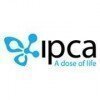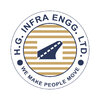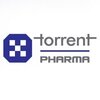EHS Manager
20+ EHS Manager Interview Questions and Answers

Asked in Trident Group

Q. What safety challenges are there in a construction site?
Construction sites pose various safety challenges due to the nature of work and environment.
Falls from heights
Electrical hazards
Struck-by incidents
Trench collapses
Heavy equipment accidents
Chemical exposure
Fire hazards
Heat stress
Noise pollution
Poor housekeeping

Asked in Ipca Laboratories

Q. What types of biohazards have you handled, and how did you dispose of them?
Biohazards can include infectious waste, sharps, and biological agents. Disposal methods vary depending on the type of biohazard.
Infectious waste should be treated and disposed of according to local regulations
Sharps should be placed in puncture-resistant containers and disposed of through a licensed medical waste disposal company
Biological agents may require specialized disposal methods, such as incineration or autoclaving
Training and education for employees on proper handli...read more
EHS Manager Interview Questions and Answers for Freshers

Asked in Ipca Laboratories

Q. What is the full form of MLSS?
MLSS stands for Mixed Liquor Suspended Solids.
MLSS refers to the concentration of suspended solids in a mixed liquor sample.
It is an important parameter in wastewater treatment processes.
MLSS is measured in milligrams per liter (mg/L) or parts per million (ppm).
It indicates the biological activity and treatment efficiency of the system.
Maintaining optimal MLSS levels is crucial for effective wastewater treatment.

Asked in Ipca Laboratories

Q. How do you calculate fire water capacity?
Fire water capacity can be calculated based on the fire hazard classification and the size of the facility.
Determine the fire hazard classification of the facility
Calculate the required fire flow rate based on the classification
Determine the duration of the fire event
Multiply the fire flow rate by the duration to get the fire water capacity
Consider any additional factors such as fire department response time and water supply availability

Asked in Ipca Laboratories

Q. What measures have you taken to minimize hazardous waste?
To minimize hazardous waste, we implement measures such as waste reduction, recycling, and proper disposal.
We conduct waste audits to identify areas where waste can be reduced.
We implement a waste reduction program that includes reducing the use of hazardous materials.
We recycle materials such as paper, plastic, and metal.
We properly dispose of hazardous waste by following regulations and using licensed disposal facilities.
We train employees on proper waste management practic...read more

Asked in H.G. Infra Engineering

Q. How would you handle an employee who consistently violated safety protocols?
Address the issue through communication, education, and disciplinary actions if necessary.
Start by having a conversation with the employee to understand the reasons behind the violations.
Provide additional training and education on safety protocols to ensure the employee fully understands the importance.
Implement regular safety meetings or toolbox talks to reinforce the importance of following protocols.
If the violations continue, issue verbal warnings, written warnings, and ...read more
EHS Manager Jobs




Asked in KEC International

Q. How can the various trades of new workers and the project team be effectively managed?
Effective management of diverse trades in EHS requires clear communication, training, and collaboration among team members.
Establish clear communication channels: Regular meetings and updates ensure everyone is on the same page.
Implement comprehensive training programs: Tailored training for different trades helps workers understand safety protocols specific to their roles.
Foster a collaborative environment: Encourage teamwork through joint safety drills and cross-training op...read more

Asked in Jubilant Foods Works

Q. What type of fire extinguisher should be used for electrical fires?
A fire extinguisher for electrical fires is a type of extinguisher specifically designed to safely extinguish fires caused by electrical equipment.
Fire extinguishers for electrical fires are typically labeled with a Class C rating.
They contain a non-conductive extinguishing agent, such as carbon dioxide or dry chemical powder.
These extinguishers are effective in smothering the fire and preventing the flow of electricity.
It is important to never use water or foam-based extingu...read more
Share interview questions and help millions of jobseekers 🌟


Asked in Ipca Laboratories

Q. How is condensate water generated in a boiler?
Condensate water is generated in a boiler when steam is condensed back into water.
Condensate water is a byproduct of the steam generation process in a boiler
It is generated when steam is cooled and condensed back into water
This water is typically high in purity and can be reused in the boiler or for other purposes
Methods for generating condensate water include using heat exchangers or cooling towers

Asked in Ipca Laboratories

Q. Explain the types of fire and fire extinguishers.
There are four types of fire: Class A, Class B, Class C, and Class D. Each type requires a specific type of fire extinguisher.
Class A fires involve ordinary combustibles such as wood, paper, or cloth. Water or foam extinguishers are suitable for this type of fire.
Class B fires involve flammable liquids such as gasoline or oil. Carbon dioxide or dry chemical extinguishers are suitable for this type of fire.
Class C fires involve electrical equipment such as appliances or wiring...read more

Asked in Ipca Laboratories

Q. How should powder wastes be disposed of?
Powder wastes should be disposed of properly to avoid environmental hazards.
Segregate the powder waste according to its type and toxicity level.
Dispose of non-hazardous powder waste in regular trash bins.
Hazardous powder waste should be collected in sealed containers and labeled properly.
Contact a licensed waste disposal company to properly dispose of hazardous powder waste.
Follow local and federal regulations for powder waste disposal.
Consider recycling options for powder wa...read more

Asked in Ipca Laboratories

Q. What is the function of a jockey pump?
Jockey pump is a small pump used to maintain pressure in a fire protection system.
Jockey pump is used in fire protection systems to maintain pressure in the system.
It is a small pump that operates continuously to keep the pressure within a certain range.
It is typically used in conjunction with larger fire pumps that are activated when the pressure drops below a certain level.
Jockey pumps are important for ensuring that fire protection systems are always ready to operate in ca...read more

Asked in Allana Group of Companies

Q. How do you conduct effective training for butchers?
Effective training for butchers focuses on safety, skills development, and compliance with health regulations.
Hands-On Training: Provide practical sessions where butchers can practice cutting techniques and meat handling under supervision.
Safety Protocols: Emphasize the importance of using personal protective equipment (PPE) like gloves and aprons to prevent injuries.
Hygiene Practices: Train on proper sanitation methods, such as cleaning tools and surfaces to prevent contamin...read more

Asked in Ipca Laboratories

Q. How do you calculate the fire load?
Fire load can be calculated by determining the amount of combustible materials in a given area.
Identify all combustible materials in the area
Determine the weight or volume of each material
Calculate the heat release rate of each material
Add up the heat release rates to get the total fire load
Consider the ventilation and layout of the area in the calculation

Asked in Trident Group

Q. Legal Challenges and requirements for EHS
EHS managers must stay up-to-date on legal requirements and challenges to ensure compliance and mitigate risks.
EHS regulations vary by industry and location
Failure to comply with regulations can result in fines, legal action, and damage to reputation
EHS managers must stay informed of changes to regulations and ensure their organization is in compliance
Examples of EHS regulations include OSHA, EPA, and local regulations
EHS managers must also be prepared to address legal challe...read more

Asked in Trident Group

Q. ISO 45001 requirements
ISO 45001 is a standard for occupational health and safety management systems.
ISO 45001 provides a framework for managing occupational health and safety risks.
It requires organizations to identify hazards, assess risks, and implement controls to prevent incidents.
ISO 45001 also emphasizes the importance of worker participation and consultation in the management system.
The standard requires continuous improvement and monitoring of the system to ensure its effectiveness.
ISO 450...read more

Asked in B.L. Kashyap & Sons

Q. Legal requirement as per BOCW Act 1996
The BOCW Act 1996 mandates legal requirements for the safety and welfare of construction workers.
The Act applies to all establishments with 10 or more construction workers.
It requires the registration of establishments and the appointment of safety officers.
It mandates the provision of safety equipment, first aid facilities, and welfare amenities.
It also requires the payment of compensation in case of injury or death of a worker.
Non-compliance can result in penalties and impr...read more

Asked in Tata Projects

Q. What safety measures should be taken during tower crane operation and installation?
Tower crane working and installation safety measures involve proper training, regular inspections, and adherence to safety protocols.
Ensure all operators are properly trained and certified before operating the tower crane.
Regularly inspect the crane for any signs of wear and tear, and address any issues immediately.
Follow all safety protocols and guidelines provided by the manufacturer and regulatory authorities.
Secure the crane properly during installation to prevent acciden...read more

Asked in Allana Group of Companies

Q. What are the key differences in EHS management between manufacturing and food and beverage industries?
Manufacturing and food & beverage industries differ in processes, regulations, and safety concerns, impacting EHS management strategies.
Regulatory Compliance: Food and beverage industries are subject to stricter health regulations (e.g., FDA) compared to general manufacturing.
Hazardous Materials: Manufacturing may involve hazardous chemicals (e.g., solvents), while food industries focus on food safety and contamination prevention.
Workplace Safety: Food processing plants often...read more

Asked in Jubilant Foods Works

Q. How do you properly wear a full body harness?
To wear a full body harness, follow these steps:
Inspect the harness for any damage or wear before use
Put your arms through the shoulder straps and adjust them so they are snug but not too tight
Fasten the chest strap and tighten it so it is secure
Step into the leg straps and adjust them for a comfortable fit
Connect the chest and leg straps to the back D-ring using the appropriate connectors
Ensure all straps are properly tightened and adjusted
Perform a function check to ensure ...read more

Asked in Jubilant Foods Works

Q. What is the total CTC and what are the variables?
CTC includes fixed salary and variable components such as bonuses and incentives.
CTC stands for Cost to Company
It includes all the expenses incurred by the company on an employee
Fixed salary, bonuses, incentives, and other benefits are included in CTC
Variables are the components of CTC that are not fixed and depend on performance
Example: CTC of an EHS Manager may include a fixed salary of $80,000 and a variable component of up to $20,000 based on performance
Asked in Fabs

Q. How do you develop a safety management plan?
Developing safety management involves creating policies, procedures, and training programs to ensure a safe work environment.
Identify potential hazards and assess risks
Establish safety policies and procedures
Train employees on safety protocols
Conduct regular safety audits and inspections
Encourage employee participation in safety programs
Continuously improve safety management through feedback and analysis

Asked in Allana Group of Companies

Q. How do you control ammonia leakage?
Controlling ammonia leakage involves preventive measures, monitoring systems, and emergency response protocols to ensure safety.
Regular Maintenance: Conduct routine inspections and maintenance of ammonia storage tanks and pipelines to identify and repair leaks promptly.
Leak Detection Systems: Implement advanced leak detection technologies, such as infrared sensors or ammonia detectors, to monitor for leaks in real-time.
Emergency Response Plan: Develop and train staff on an em...read more

Asked in Knight Frank

Q. What are the legal requirements?
Legal requirement for what? Please specify.
The question is too broad and needs to be more specific.
Legal requirements vary depending on the industry and location.
It is important to consult with legal experts to ensure compliance.
Examples of legal requirements include OSHA regulations, environmental laws, and labor laws.
Asked in Fabs

Q. Legal requirements at construction industry
Legal requirements in construction industry
Compliance with OSHA regulations
Adherence to building codes and permits
Proper disposal of hazardous materials
Worker safety training and equipment
Environmental impact assessments
Contractor licensing and insurance
Worker's compensation insurance
ADA compliance for accessibility
Noise and vibration control measures

Asked in Ipca Laboratories

Q. 3. Flow diagram of ETP
A flow diagram of an ETP shows the process of treating wastewater before it is discharged into the environment.
The flow diagram typically includes the different stages of treatment, such as screening, sedimentation, and disinfection.
It may also show the equipment used in each stage, such as pumps, filters, and chemical dosing systems.
The diagram should indicate the flow of water through the system, including any recirculation or reuse of treated water.
The final stage of the p...read more

Asked in Allana Group of Companies

Q. Challenge in frozen meat processing unit
Frozen meat processing units face challenges like food safety, equipment maintenance, and supply chain management.
Food Safety Regulations: Ensuring compliance with health regulations is crucial; for example, regular audits and inspections are necessary.
Temperature Control: Maintaining consistent freezing temperatures is vital to prevent spoilage; using advanced monitoring systems can help.
Cross-Contamination: Implementing strict hygiene protocols, such as separate processing ...read more

Asked in Creative Projects & Contracts

Q. Describe EHS compliance.
EHS compliance involves ensuring that an organization follows all environmental, health, and safety regulations and standards.
Ensuring compliance with local, state, and federal regulations
Implementing policies and procedures to address environmental, health, and safety concerns
Conducting regular audits and inspections to identify areas of non-compliance
Providing training to employees on EHS regulations and best practices
Maintaining records and documentation to demonstrate com...read more
Interview Experiences of Popular Companies






Calculate your in-hand salary
Confused about how your in-hand salary is calculated? Enter your annual salary (CTC) and get your in-hand salary


Reviews
Interviews
Salaries
Users










